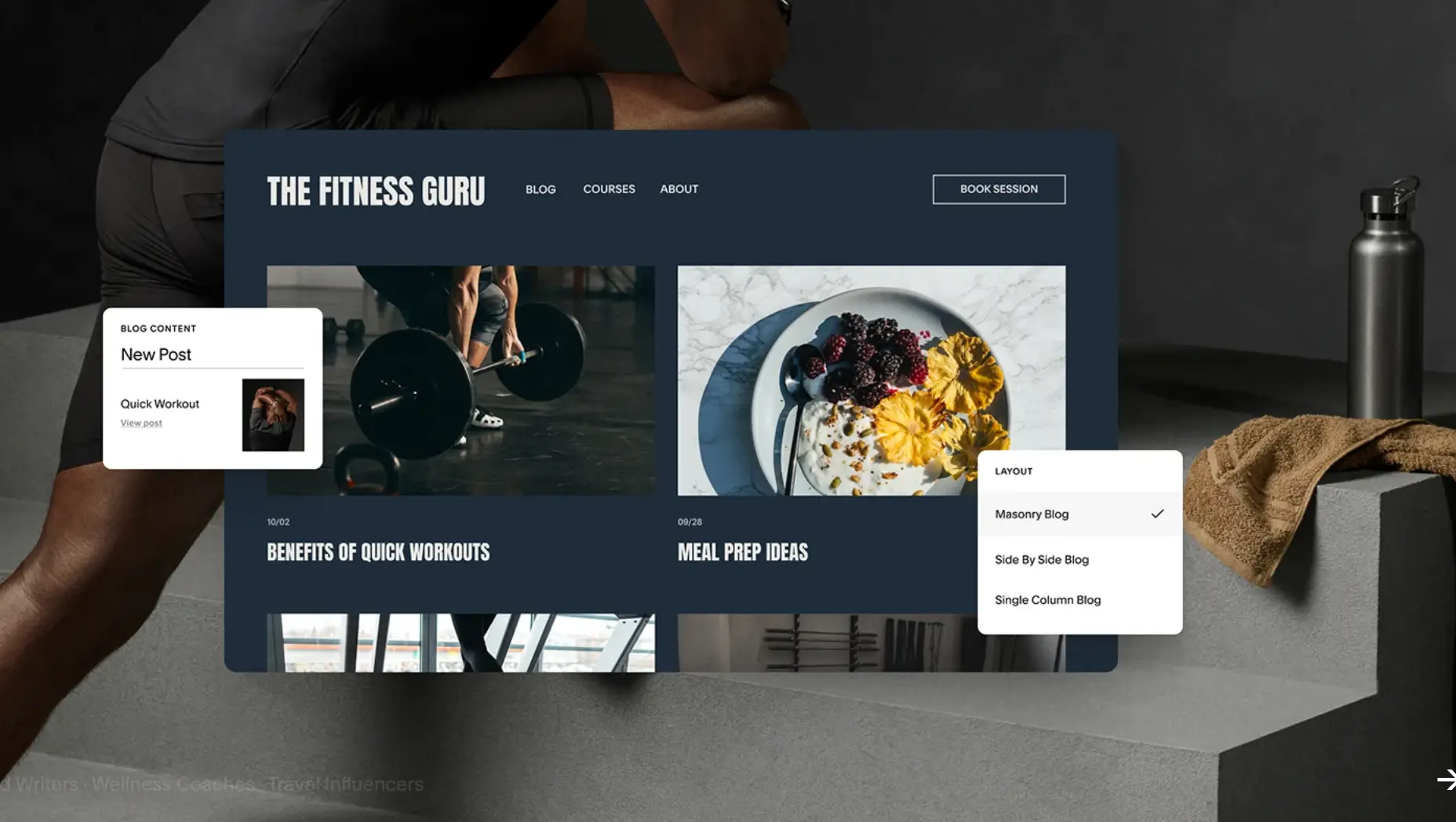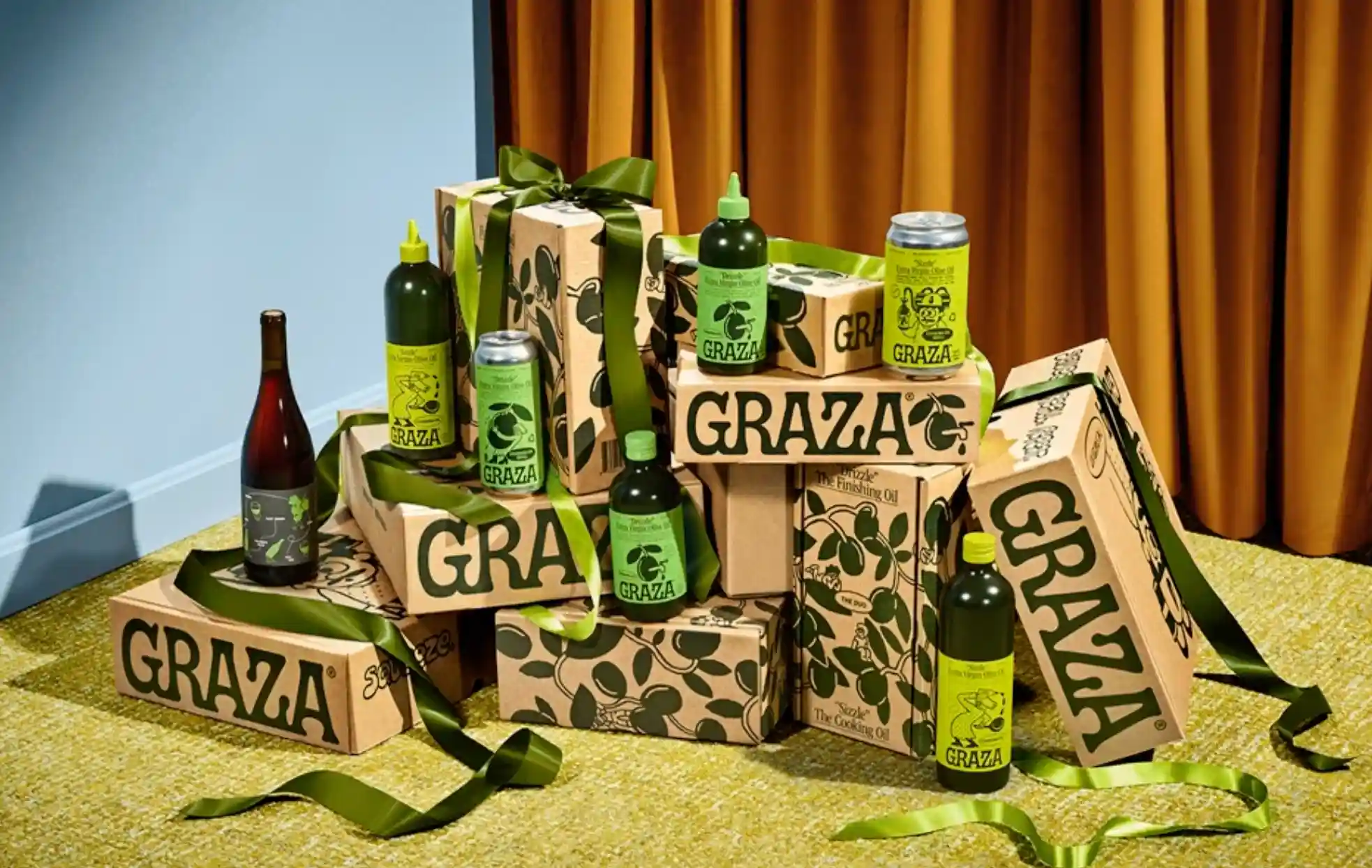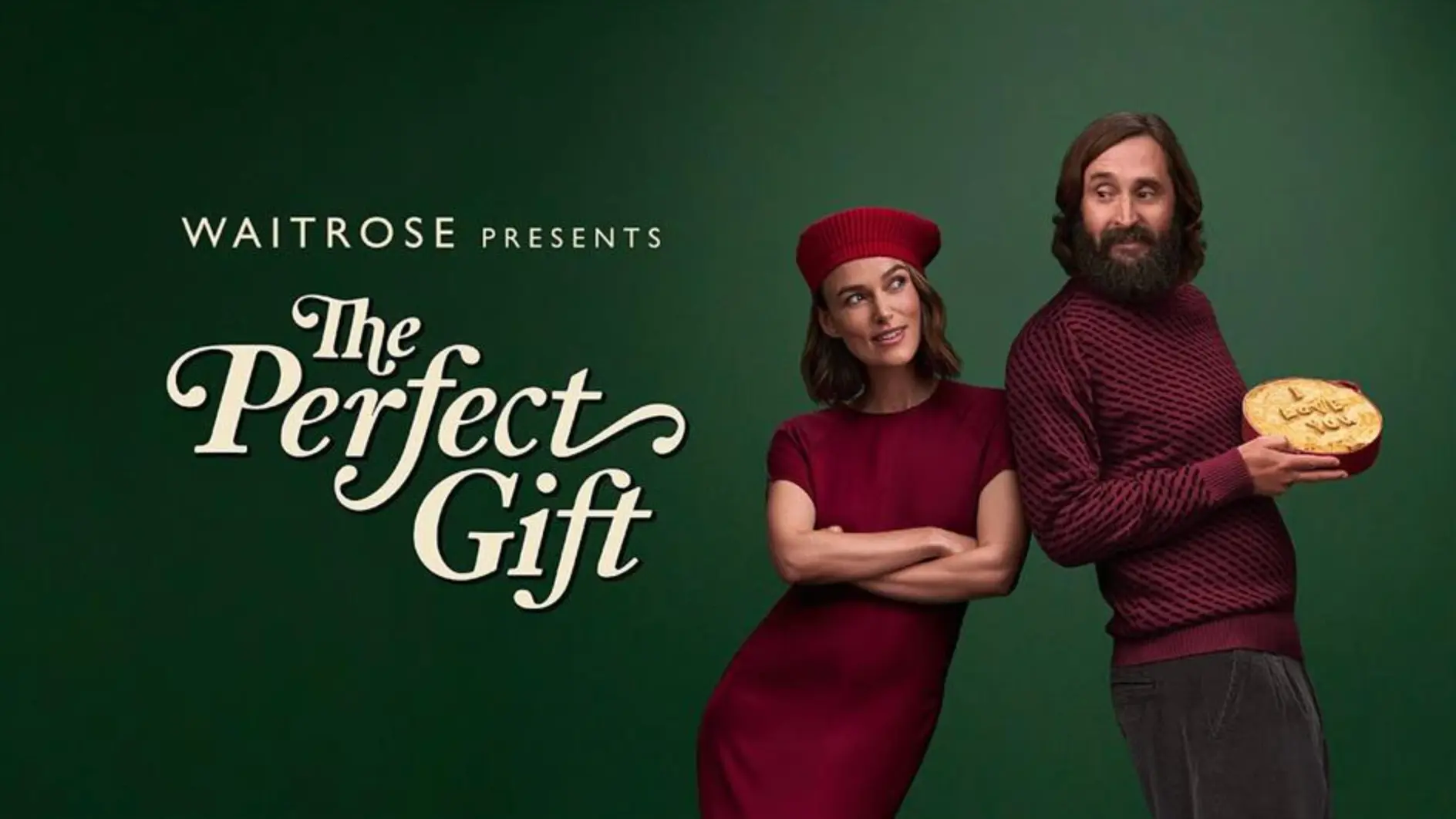Most Successful Coffee Shops in Toronto: 15 Toronto Coffee Icons
Updated on
Published on
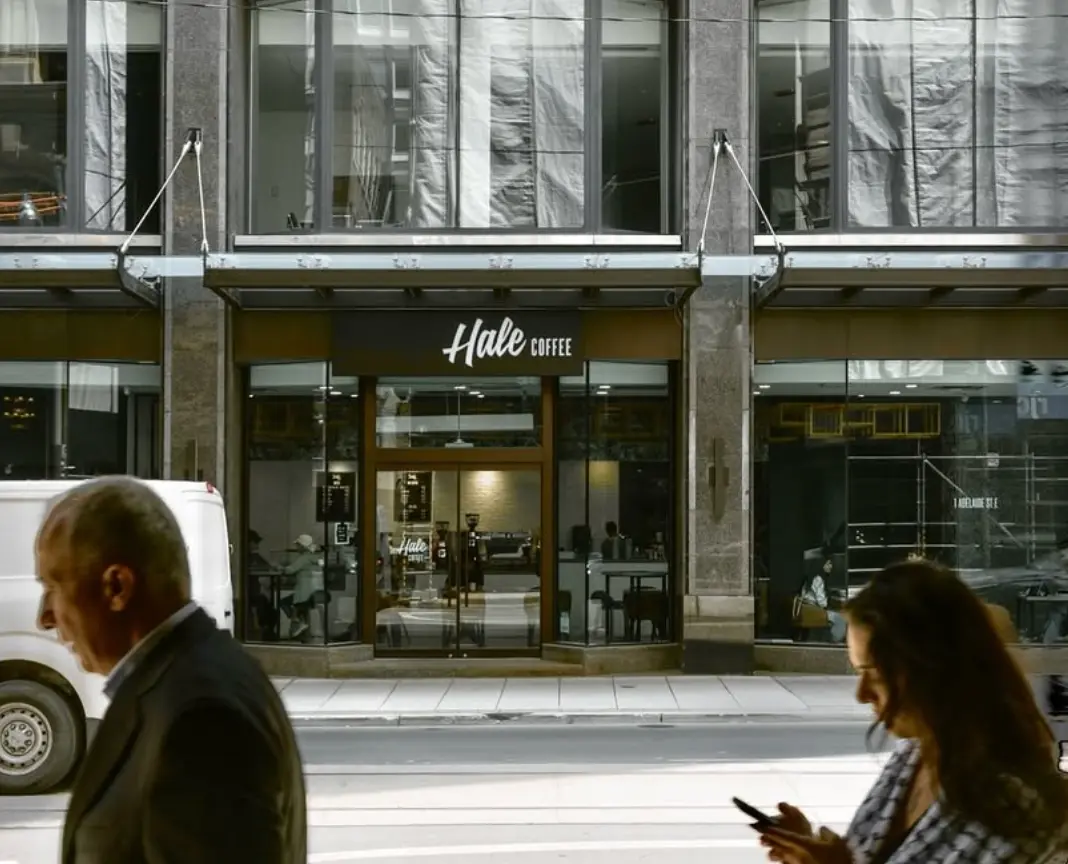
Toronto’s café scene didn’t blossom by accident—it was built by roasters and operators who treated coffee like craft and business like a marathon. The most successful coffee shops in Toronto share a pattern: tight sourcing, memorable spaces, and a brand that scales without losing its soul. Below are the 15 leaders—many also counted among the best coffee shops in Toronto—with the story behind each rise.
At a Glance
- Pilot Coffee Roasters — roaster-retail powerhouse with multiple cafés.
- Sam James Coffee Bar — compact espresso bars with citywide consistency.
- Dineen Coffee Co. — heritage interiors and downtown volume.
- Dark Horse Espresso Bar — community tables and approachable third-wave.
- Jimmy’s Coffee — neighbourhood vibe across cozy, high-traffic corners.
- Balzac’s Coffee Roasters — Parisian polish with an Ontario footprint.
- De Mello Coffee Roastery — vibrant roasting style and playful brand.
- Boxcar Social — coffee by day, wine/whisky by night.
- Reunion Coffee Roasters — legacy roaster with purpose-driven ethos.
- Neo Coffee Bar — specialty coffee meets Japanese pâtisserie.
- Propeller Coffee Co. — award-winning roastery and event space.
- Fahrenheit Coffee — competition-level espresso bars.
- Rooster Coffee House — patios, park views, and friendly service.
- Mercury Espresso Bar — east-end pioneer for espresso purists.
- Hale Coffee — community education and steady wholesale growth.
1) Pilot Coffee Roasters
Born in Leslieville’s early specialty days, Pilot evolved from a tiny roastery into a full stack operation—roasting, retail cafés, and a national wholesale network. A 2013 move into a dedicated roastery at 50 Wagstaff formalized the growth, and multiple cafés cemented Pilot as a training ground for baristas and a supplier for fellow shops across Canada (Pilot, Sprudge).
- Known for: consistent sourcing, barista development, wide wholesale reach.
- Why it works: brand built on training + reliable quality at scale.
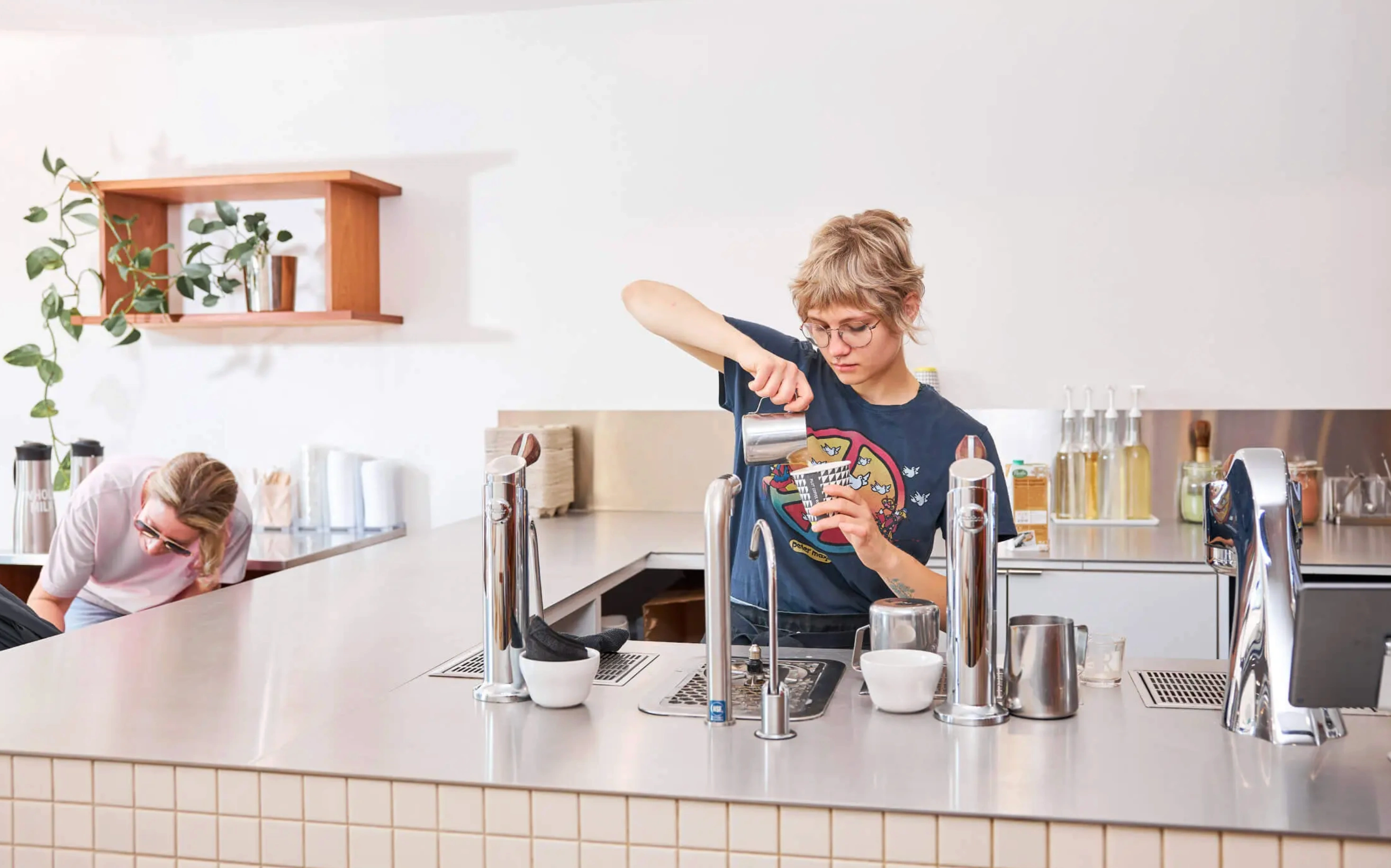
2) Sam James Coffee Bar
Barista-founder Sam James opened on Harbord after winning Canadian Barista of the Year in 2008, then rolled out compact, high-throughput bars across the core. The formula—no gimmicks, just tight espresso and neighborhood convenience—made SJCB one of the best coffee shops in Toronto for everyday stops, with a wholesale presence to match (Sam James—About).
- Known for: “just coffee” minimalism; consistent extractions citywide.
- Why it works: founder craft + small, repeatable formats.
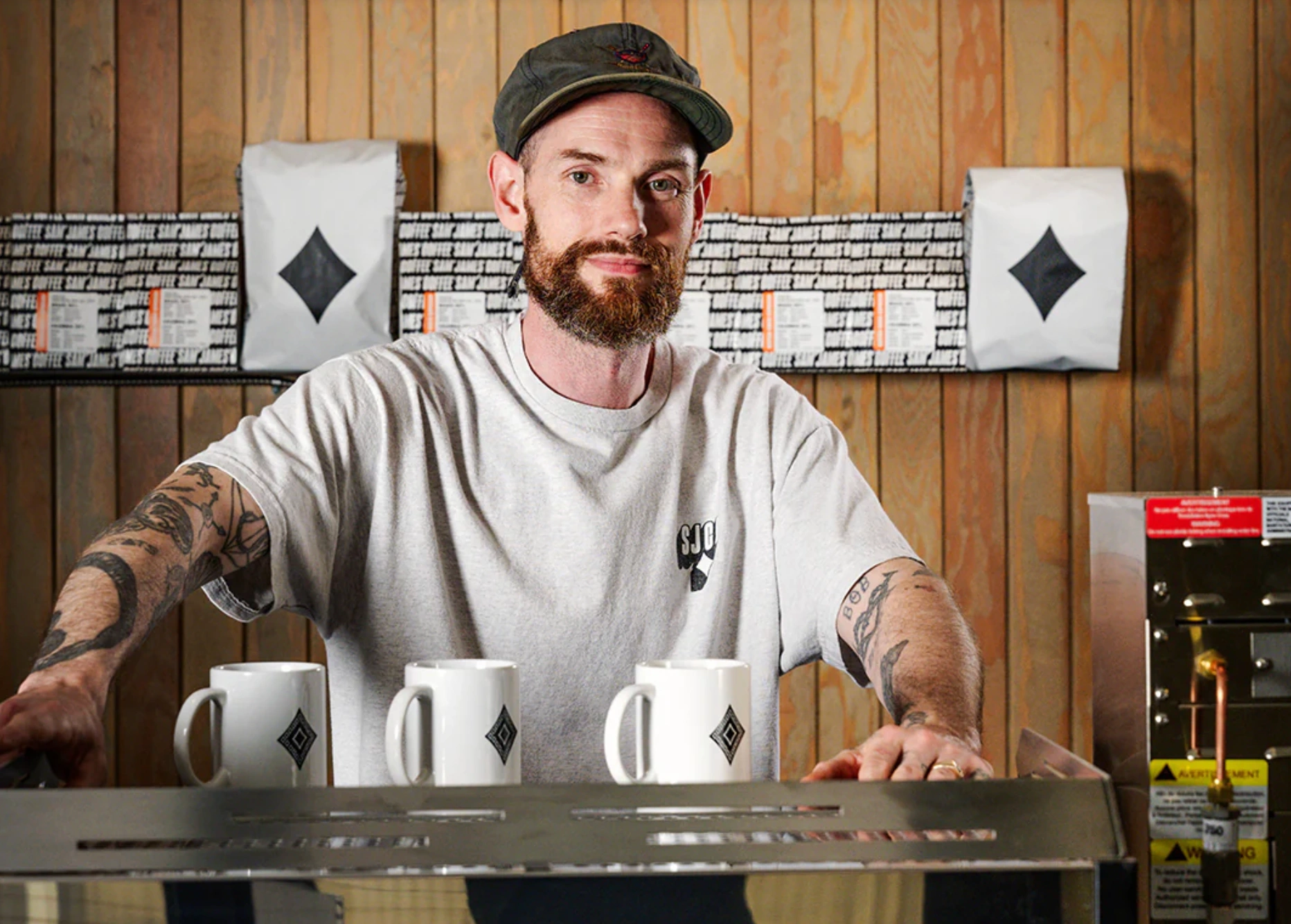
3) Dineen Coffee Co.
Dineen turned a landmark corner at Yonge & Temperance into a heritage showpiece, pairing old-world design with downtown volume. Opened in 2013 inside the historic Dineen Building, it became a Financial District staple and expanded with sister locations, proving ambiance can be a moat when paired with solid coffee service (Dineen—History, Dineen).
- Known for: grand room, tile floors, bustling weekday energy.
- Why it works: destination design in the city’s densest corridor.
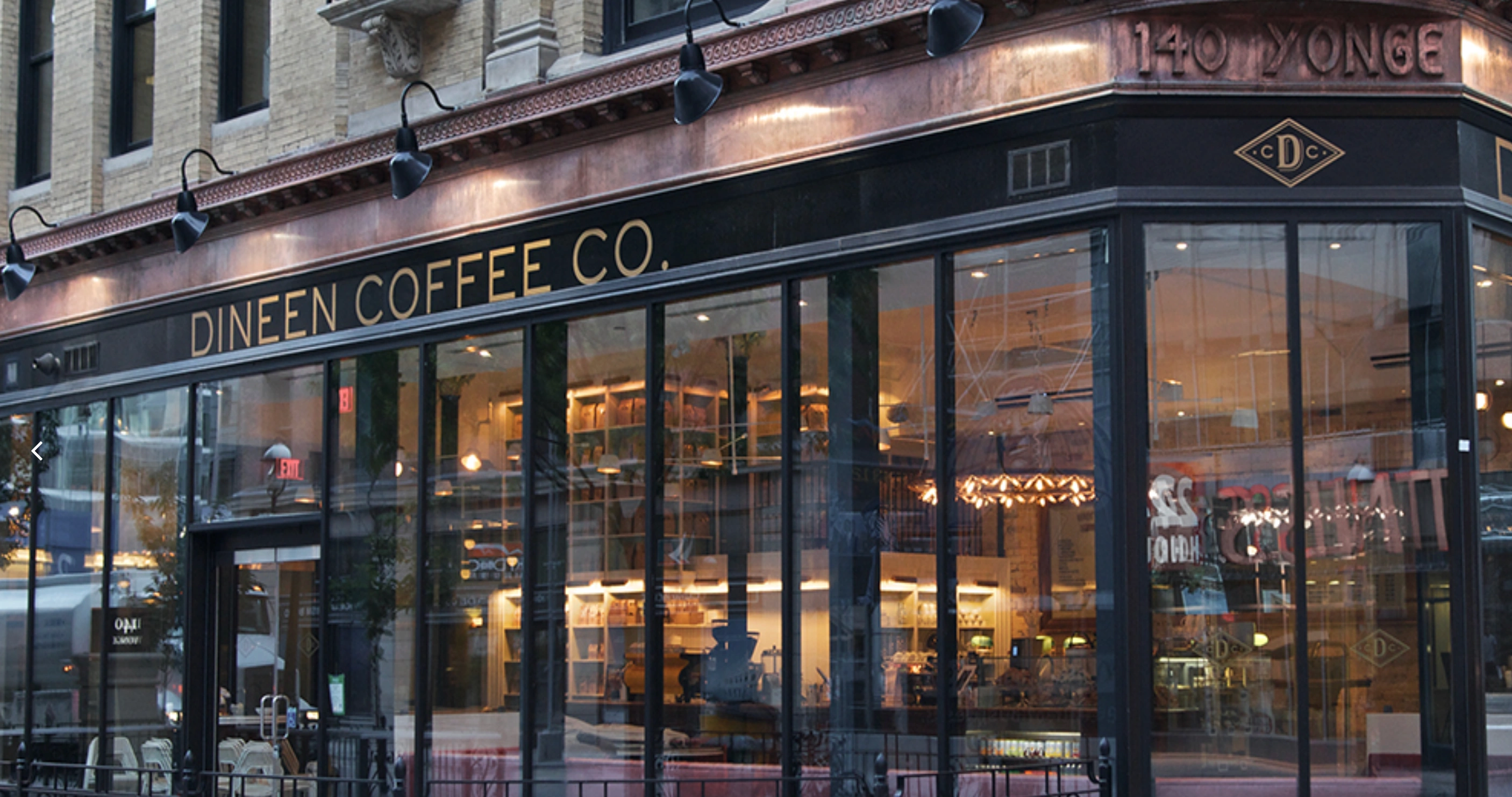
4) Dark Horse Espresso Bar
Launched in 2006 in then-up-and-coming Riverside, Dark Horse popularized communal tables and multi-roaster service, expanding into a small chain that helped define modern café culture on both sides of the core. Its origin story—community first, third-wave coffee second—made it a reliable hub for creatives and commuters alike (Dark Horse—Our Story).
- Known for: big tables, open sightlines, approachable third-wave.
- Why it works: spaces engineered for connection and throughput.
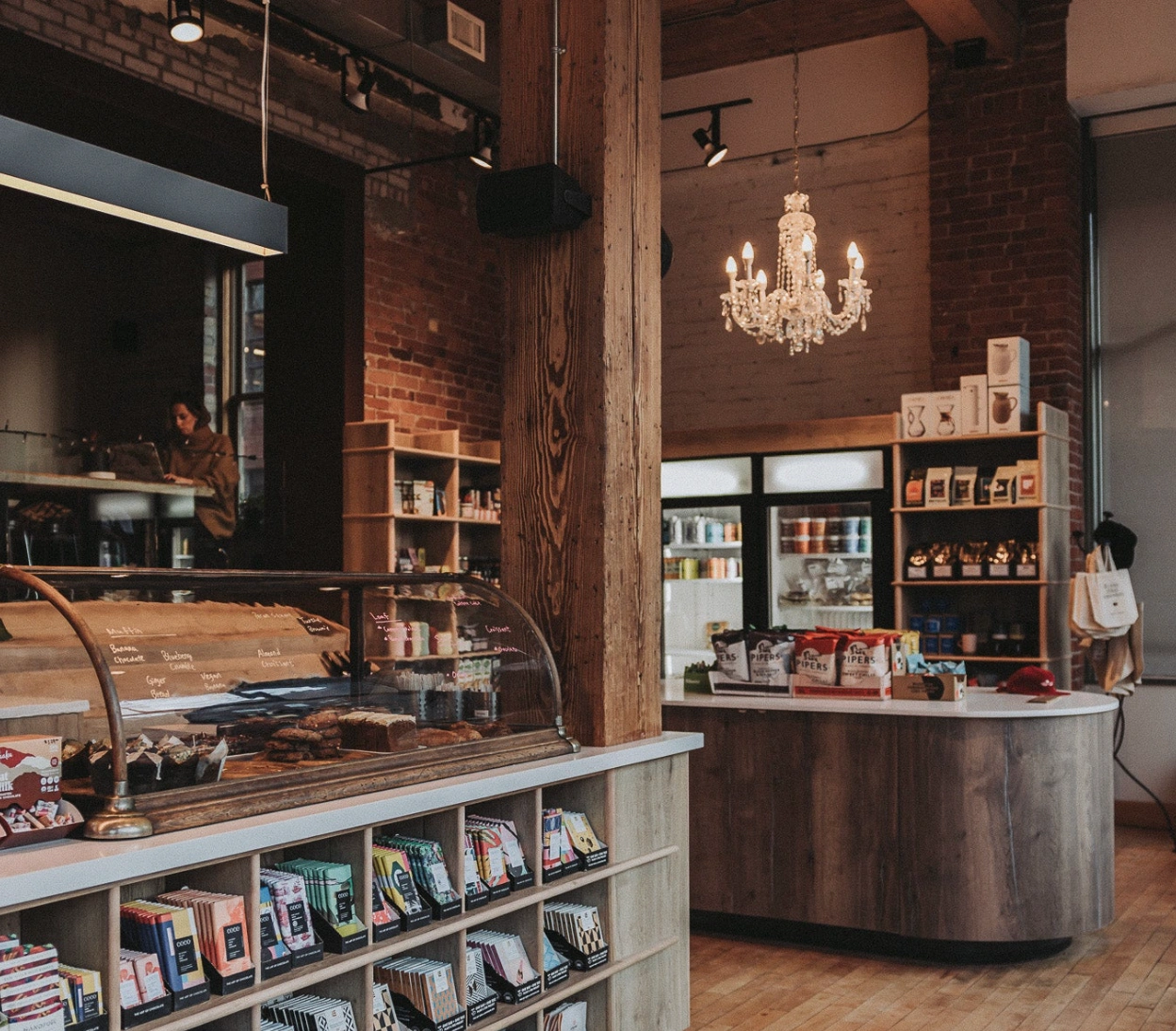
5) Jimmy’s Coffee
Serial entrepreneur Phil Morrison opened Jimmy’s in 2009, building a brand around “every Jimmy” on the walls and a neighborhood-first vibe. Jimmy’s is one of the most successful coffee shops in Toronto and over time, Jimmy’s grew into a big network of cozy, personality-filled cafes in high-foot-traffic pockets, broadening its retail while keeping the indie feel intact (Jimmy’s—Who Is Jimmy).
- Known for: celebrity “Jimmys” art, snug rooms, community feel.
- Why it works: warm brand story + smart corners of the city.
6) Balzac’s Coffee Roasters
Founded by Diana Olsen and grown carefully into a polished Ontario mini-chain, Balzac’s mixes Parisian aesthetics with Canadian roasting roots. The company’s story is one of steady craft and hospitality, bringing “boutique café” polish to busy urban and campus locations across the region (Toronto Coffee Festival interview, Balzac’s—Founder).
- Known for: café design, approachable specialty, regional footprint.
- Why it works: consistent brand language across diverse sites.
7) De Mello Coffee Roastery
Co-founders Felix and Won Cha brought Australian-influenced specialty to Midtown in 2013, growing a loyal community and award-winning roastery. De Mello’s bright profiles and playful packaging helped it stand out on retail shelves and in café menus citywide (De Mello—Our Path).
- Known for: vibrant roasts, playful brand, café-roastery culture.
- Why it works: distinct flavor identity + wholesale relationships.
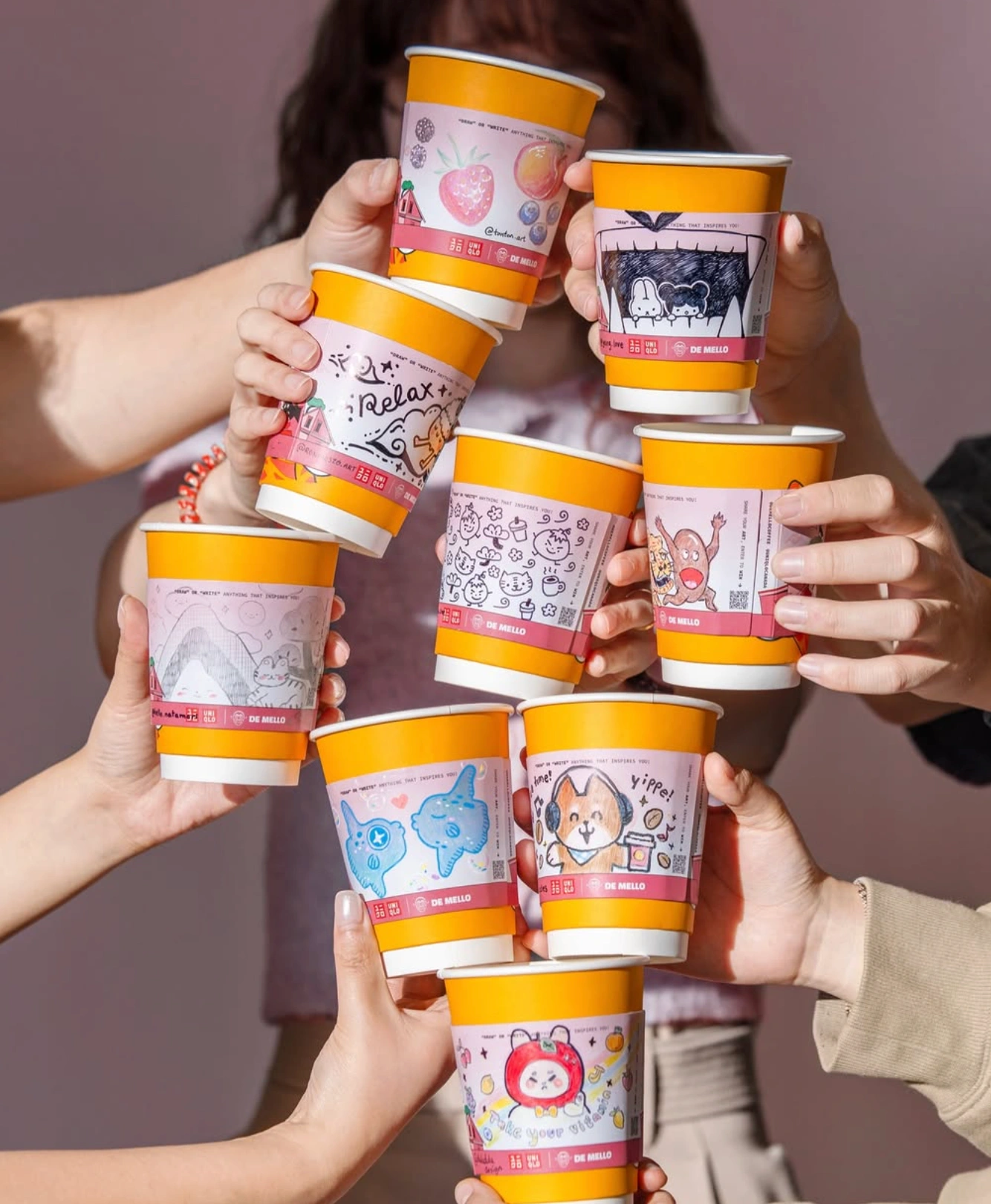
8) Boxcar Social
Four co-founders paired coffee with curated wine and whisky, building an all-day space that treats beverages as a single craft universe. The multi-roaster, multi-category model made Boxcar a magnet for both morning regulars and evening connoisseurs, with press coverage that amplified the concept beyond coffee circles (Fresh Cup).
- Known for: coffee by day, whisky/wine by night; multi-roaster curation.
- Why it works: one room, two premium rituals, all under a café brand.
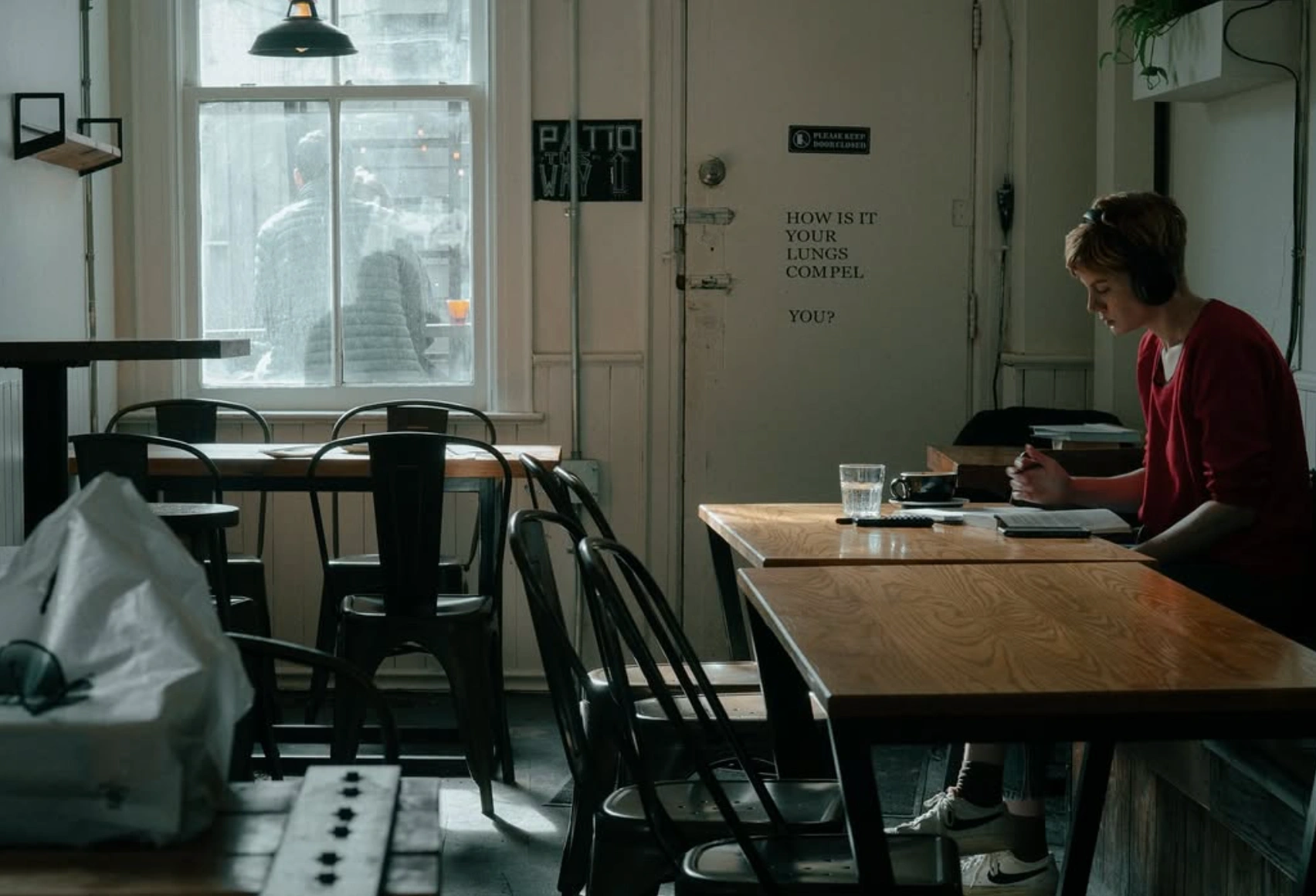
9) Reunion Coffee Roasters
A legacy roaster with B-Corp credentials, Reunion’s roots go back to founder Peter Pesce—long cited as one of the country’s top cuppers—and a family business steeped in quality and sustainability. The modern rebrand and retail cafés brought that roasting heritage to a wider audience (Reunion—About).
- Known for: certified B-Corp ethos, sourcing depth, flagship cafe.
- Why it works: heritage + purpose marketed for today’s drinker.
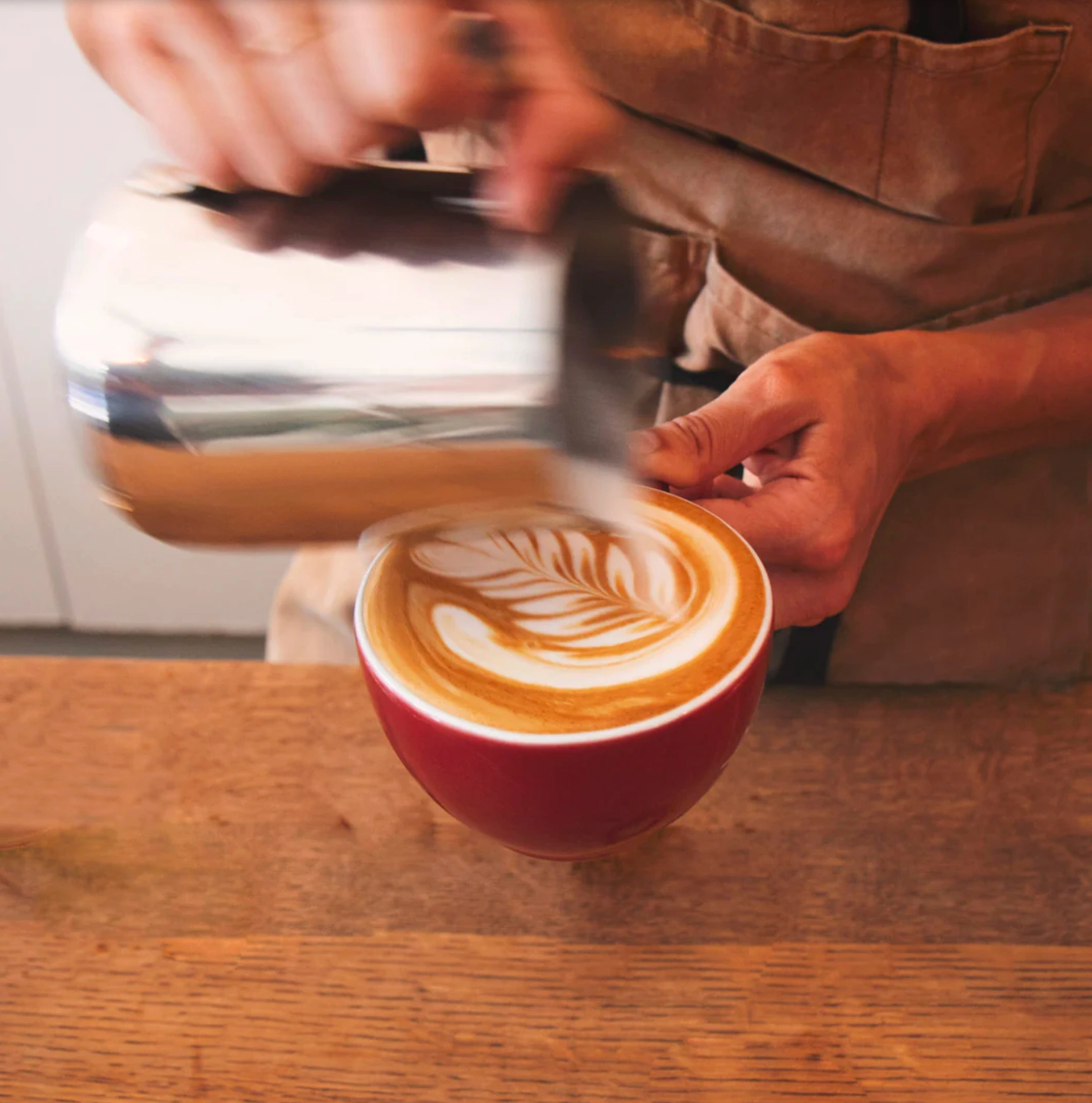
10) Neo Coffee Bar
Neo blended specialty coffee with Japanese pâtisserie, making roll cakes as famous as the espresso and turning cafés into design showcases. Founders and partners expanded the brand with new downtown sites and hospitality-group support, proving the coffee-plus-dessert model could scale in Toronto’s core (NEO—Our Story).
- Known for: matcha roll cakes, Dialogue 38 design, serene interiors.
- Why it works: signature pastry + specialty service = destination.
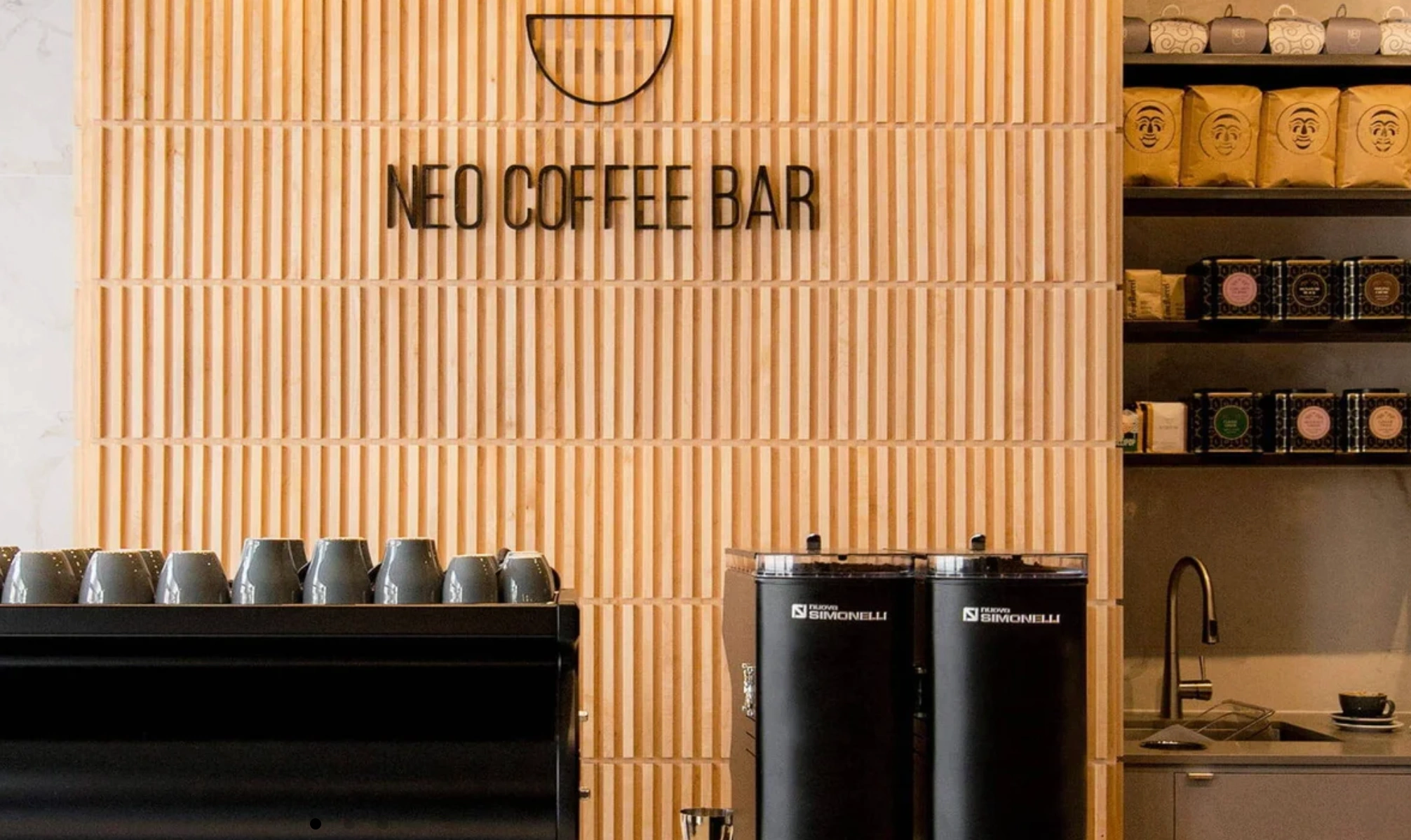
11) Propeller Coffee Co.
From a Wade Ave. roastery and event space, Propeller built a reputation for precision and sustainability—capped by Roast Magazine’s 2016 Micro Roaster of the Year award. The win became an inflection point for wholesale and brand awareness, backed by serious QA practices and B-Corp values (Roast Magazine—ROY).
- Known for: award-winning roasts, event-friendly roastery, QA rigor.
- Why it works: quality systems that scale beyond the café.

12) Fahrenheit Coffee
Sameer Mohamed’s barista-driven brand made Lombard Street a pilgrimage for espresso—standing bar, trophies, and all. Multiple competition accolades and hands-on classes kept Fahrenheit’s reputation sticky, and additional locations extended its footprint without losing the pro-barista DNA (Fahrenheit).
- Known for: competition-level espresso; small, focused bars.
- Why it works: skill culture that guests can taste—and learn.
13) Rooster Coffee House
Rooster anchored three quintessential neighborhoods—Broadview park, King East, and Jarvis—with friendly service, patios, and a house-roast line. It’s the archetype of a neighborhood café that became a small, beloved brand with citywide recognition and long dwell-times (Rooster site).
- Known for: park-view patio, dog-friendly vibes, crowd-pleasing blends.
- Why it works: hospitality forward + all-day utility.
14) Mercury Espresso Bar
One of the east end’s originals (opened 2006), Mercury set a high bar for Leslieville—tight extractions, eclectic guest roasters, and a tiny room that still hums. Founders helped pioneer the neighborhood’s indie wave, and the bar remains a reference stop for espresso purists (Toronto Life).
- Known for: no-nonsense espresso, guest roasters, neighborhood roots.
- Why it works: early mover + consistent cup.
15) Hale Coffee
Hale is a successful Toronto coffee shop that grew from a 2013 startup into a roastery-café with education, cuppings, and a Junction hub—then added downtown service and wholesale training to spread the gospel. It’s a case study in community-led scaling: approachable profiles, public classes, and steady citywide presence (Hale—About).
- Known for: community cuppings, approachable roasts, Junction home base.
- Why it works: education + wholesale support = sticky relationships.

FAQ
What makes a shop “most successful” in Toronto?
Multi-year consistency, strong coffee quality, smart locations, and a brand that scales.
Do these cafés roast their own coffee?
Many do (Pilot, Propeller, De Mello, Reunion); others partner with top roasters.
Where should I start if I’m visiting for one day?
Pick one roaster café (Pilot or Propeller), one heritage room (Dineen), and one neighbourhood gem (Sam James or Rooster).
Which spots are ideal for working?
Dark Horse, Boxcar Social, and Balzac’s often have room and reliable Wi-Fi.
Best coffee places for espresso purists?
Fahrenheit, Mercury, and Sam James.
How we chose
We looked for durable business success—multi-year operation, brand equity, expansion (cafés, wholesale, or both), and distinct value propositions. These choices have spread as favorites amongst Torontonians, that’s why these shops consistently land as the most successful coffee shops in Toronto. Follow our guide and see why many double as the best coffee shops in Toronto for your next cup.


